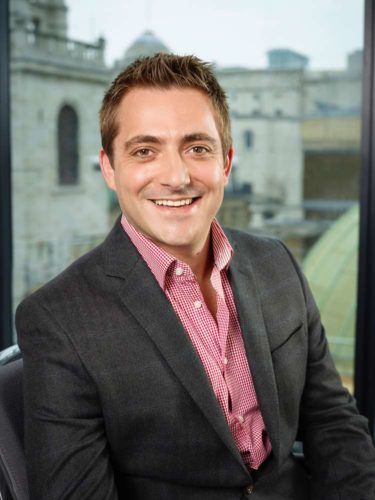Top Accounting Tech Predictions for 2019
Published by Gbaf News
Posted on January 8, 2019
4 min readLast updated: January 21, 2026

Published by Gbaf News
Posted on January 8, 2019
4 min readLast updated: January 21, 2026

By Damon Anderson, director of partner and product at Xero
2019 is Bladerunner year; the setting for the original Ridley Scott movie in which Deckard, assassin-for-hire played by Harrison Ford, hunts androids, drives flying cars and skypes his synthetic girlfriend. A freelancer in lucrative demand from the mysterious Tyrell Corporation, Deckard never does his taxes, despite the advanced technology evident in the film. But as we approach 2019 for real, what technology can accountants expect?

Damon Anderson
As part of the UK’s drive towards a digital Britain, businesses above the £80k VAT threshold will need to file their tax through HMRC cloud platforms. This will mean fewer accounting errors, and more time for accountants to advise clients. Highlighting the need for change, Xero’s research found 1 in 5 accountants still use paper ledgers, and in November of this year, 1 in 4 small business owners hadn’t even heard of Making Tax Digital.
The adoption of HMRC’s initiative by 1.1m small businesses from April 2019 will spark the beginning of the end of traditional tax submission processes and paper-based management for a range of businesses. To help, Xero has created Dexter the Digital Tax Advisor, an animated accountant advising businesses on how to file their tax digitally when Making Tax Digital for VAT happens next year. The move to cloud-based financial management is expected to usher in a new era of smarter businesses and smarter accountancy, and also opens up the role of the accountant, from number cruncher to more high-level business advisor.
AI will increasingly inform digitisation and smarten business in 2019. Thanks to advances in cloud technology, small businesses will also be able to access AI and machine learning, the algorithms enabling computers to wise-up. Examples of SMBs already deploying AI include The Hoth who use machine learning-powered billing and Passage AI which uses AI to build intelligent chat-bots. But for the full potential of AI to be realised, we’re going to need a faster internet – enter 5G.
2019 will witness the gradual the roll-out of 5G, the next-level of super-fast connectivity and data storage. With 5G being tested throughout 2018 and with Samsung, LG, Sony HTC and other phone manufactures working with chip manufacturer Qualcomm to bring out 5G-ready devices in 2019, 5G’s infancy has begun. 5G networks are predicted to be up to 100 times faster. This increased speed will lead to accounting firms using machine learning and AI to perform audits and more complex tasks, enabling accountants to crunch data faster and supply consultancy services. Accordingly, 2019 might also be the year when accountants move away from the billable per-hour model to reflect their broader business role.
As 5G and cloud adoption gathers pace, computer companies will be able to focus on a hybrid cloud approach in which public and private clouds are used together by one business. We are already seeing the impact of standard cloud tech in accountancy, in which cloud-based platforms enable seamless connections between clients and customers, and from any location. Businesses will also begin to expect more from their cloud accounting software, with vertical-specific cloud platforms with business intelligence software built into them. This will enable accountants to access deep and specific data on the move, for enhanced decision making.
IoT (internet of things) are devices connected to the internet able to share information with each other with minimal human intervention. Increasingly reliant on AI, neural-networking (edge computing) will allow tech-savvy accountants to access real-time transactional data and operations, to make better risk assessments. The role of auditors could also change: IoT will create much more data, require enhanced monitoring and uninterrupted auditing. Next year expect to see auditors become data analysts, as edge computing plays a greater role in data storage, and IoT boosts budgeting accuracy, cost planning and forecasting.
As all this exciting technology develops, the world of work must humanise the face of AI and ensure the technology informs human processes rather than removes them. Business and cutting-edge technology look set to become even more entwined in 2019, but what’s for certain is that staying ‘human’ (as we have with Dexter the Digital Tax Advisor) will remain at the heart of the best developments.
Explore more articles in the Finance category
